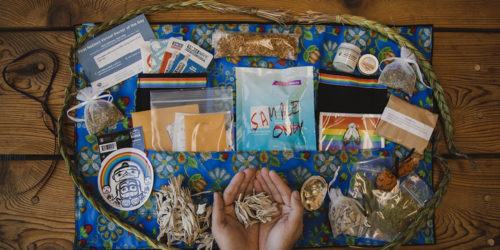Organizing our grief: A collaboration in response to the overdose crisis
August 1, 2023 • By Zoë Dodd, Theodore (ted) Kerr, Karie Liao, Fraser McCallum and Ellyn WalkerOrganizing Our Grief: A Collaboration in Response to the Overdose Crisis is a free online publication that aims to capture and communicate a mobile public artwork and event series called Wish You Were Here, Wish Here Was Better, that made space for people impacted by the ongoing overdose and toxic drug crisis. Central to WYWH, WHWB was a mural by artist Les Harper, entitled ekisâkihitin (“I love you” in Cree), that features the images of 19 people from the Peel region who died due to overdoses. We published Organizing Our Grief as part of Living with Concepts, a series of...






